Luton Airport: Calls for flight path changes to be abandoned
- Published
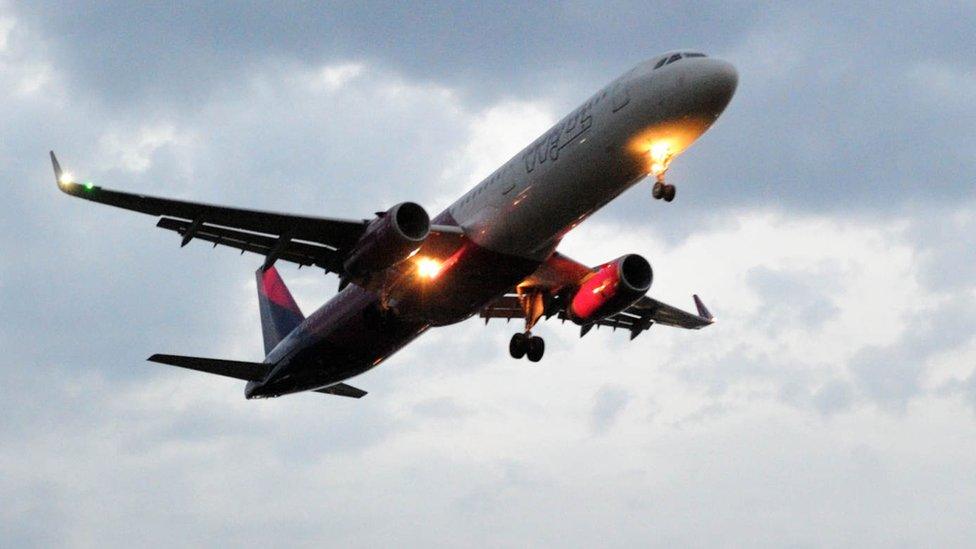
A review of flight path changes into Luton Airport has been extended until September
Campaigners are calling for a controversial airport landing pattern to be abandoned due to its "detrimental effect" on communities.
Flight paths into Luton Airport were altered in February 2022 because of its relative proximity to Stansted.
Descending aircraft now fly over parts of Cambridgeshire, prompting complaints of "appalling braking noise".
Reject Luton Airport Stacking (RELAS) said current flight volumes over the region were "the tip of the iceberg".
A spokesman also called on Luton Airport to release its flight data and said the issue needed to go back into consultation.
The airport's spokesperson said the new holding area and flight paths "simplify and modernise" arrival routes.
A post-implementation review (PIR) of the flight path has been extended until September to allow the impact of the summer season to be assessed.
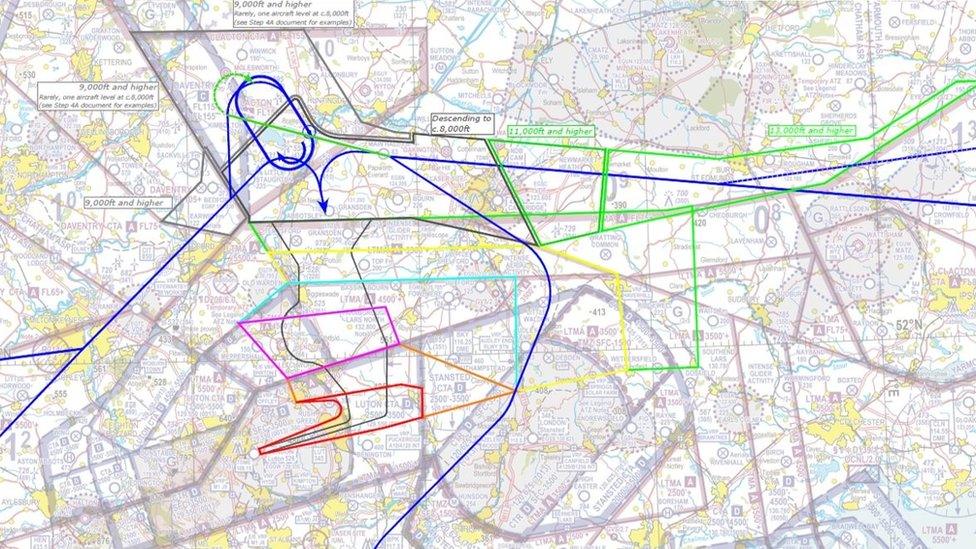
Luton-bound aircraft have been using a new "holding" area over Cambridgeshire since February 2022
The Civil Aviation Authority (CAA) approved the airspace changes in November 2021 after a five-month public consultation between Luton Airport and NATS, the air traffic control provider, which garnered more than 2,400 responses.
The move was approved due to Luton's proximity to Stansted as the airports are just 26 miles (42km) apart by air.
Luton's holding pattern, in place since February 2022, now takes place in the skies over South Cambridgeshire and Huntingdonshire - rather than over Royston in Hertfordshire which was the previous arrangement.
'Disingenuous'
The Bedfordshire airport has submitted expansion plans which could see passenger numbers rise from 18 million to 32 million a year and said the increase would generate £1.5bn a year for the local economy.
RELAS said it was a clear example of "big business running roughshod over community well-being".
"The consultation on this took place over lockdown, when people were not paying attention," the spokesman said.
"There is an element of apathy when it comes to public consultations and Luton Airport exploited that. The materials and information provided were too difficult to consume."
He said RELAS wanted the airport and NATS to "properly engage with the public" and consider fully the environmental impact of the flight paths.
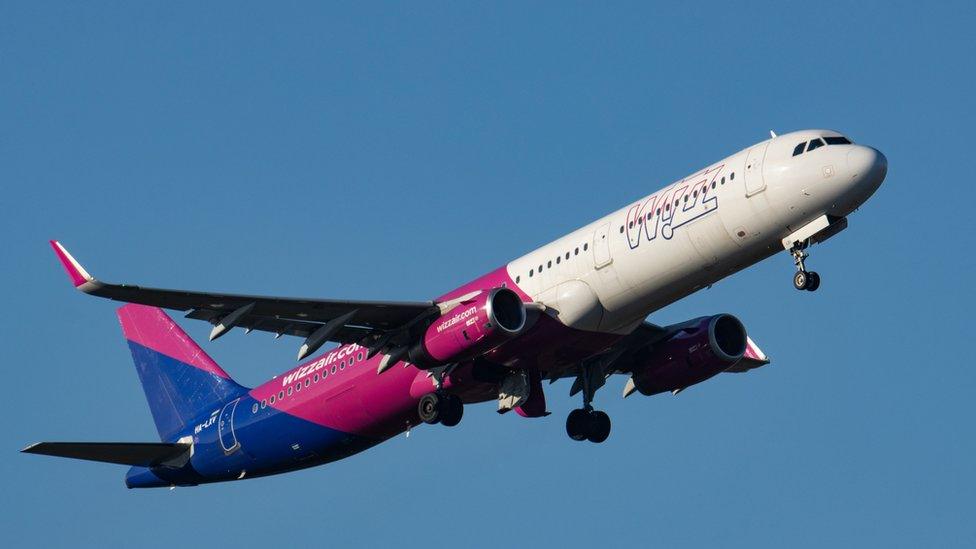
Residents reported increased noise and disruption from aircraft using the new flight path routes into Luton Airport
Anthony Browne, the Conservative MP for South Cambridgeshire, claimed increased noise over several towns and villages had triggered post-traumatic stress disorder (PTSD) in some - and left others considering moving home.
He told the BBC: "Residents are suffering enormously from the noise and disruption, often keeping them awake at night. Many moved into Cambridgeshire to avoid exactly the kind of disturbance they now face."
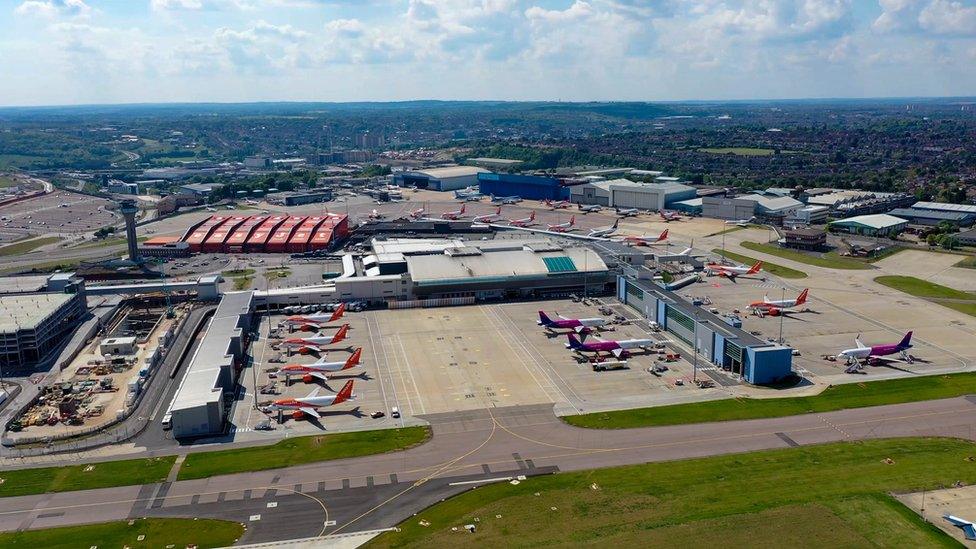
Luton Airport has submitted expansion plans that could see passenger numbers rise from 18m to 32m a year
A spokesperson for the CAA said it would undertake the review "to make sure NATS and Luton Airport carry out a rigorous assessment, which we then evaluate as to whether the anticipated impacts and benefits in the original proposal and published decision are as expected."
A spokesman for Luton Airport said the new holding area and flight paths "simplify and modernise the arrival routes into the UK's fifth busiest airport and separate them from Stansted's".
He added that the airport would "collect data on aircraft tracks and altitude on the route and analyse expected flightpaths versus actual flightpaths."
"All complaints are logged and will form part of this analysis," he said.

Find BBC News: East of England on Facebook, external, Instagram, external and Twitter, external. If you have a story suggestion email eastofenglandnews@bbc.co.uk, external
- Published28 March 2023
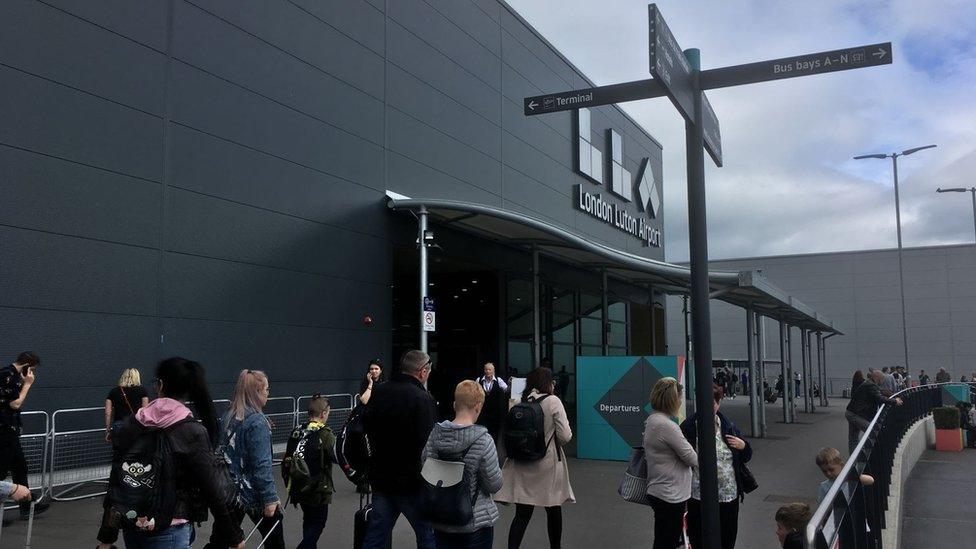
- Published28 February 2023
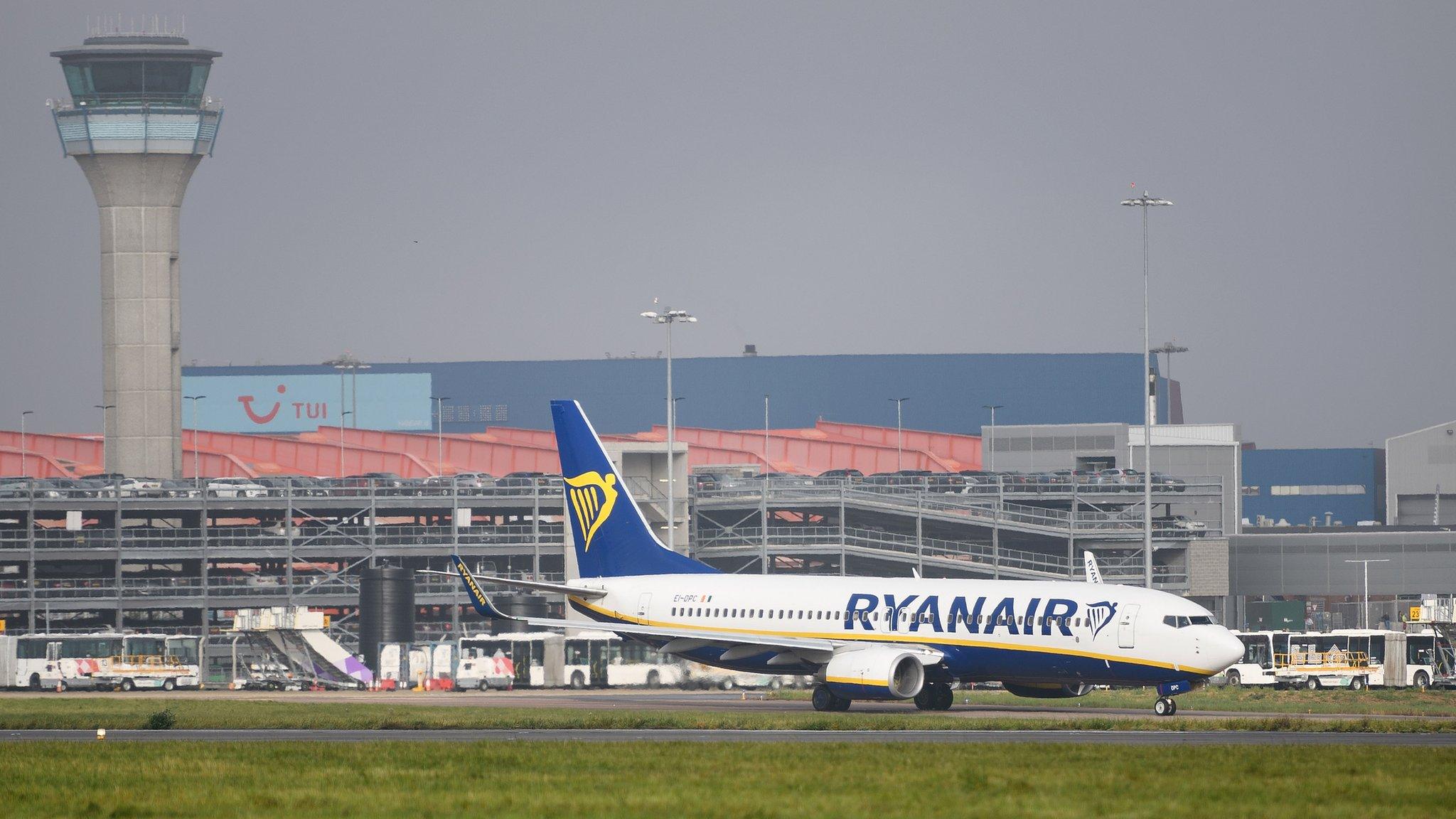
- Published24 February 2022
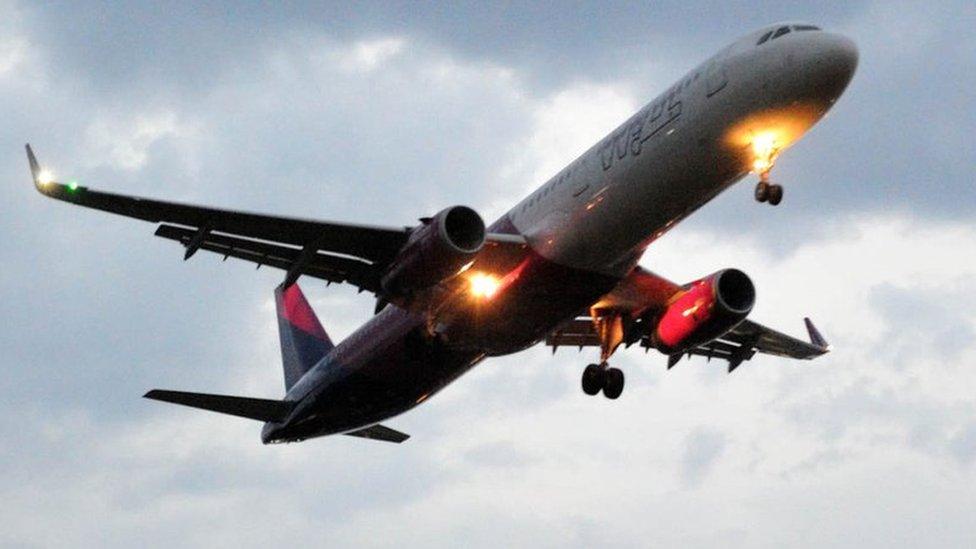
- Published25 November 2021
